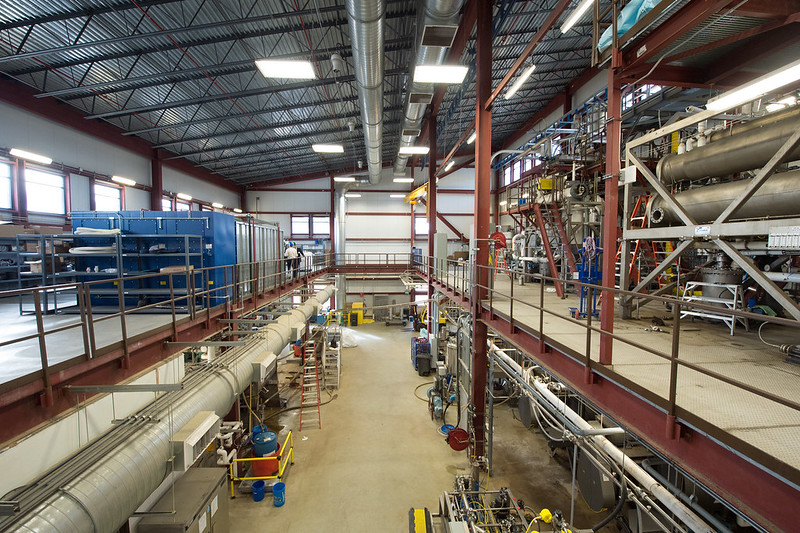We’re nearly three years into the recession, and our economy still shows few signs of life. The Department of Labor just announced that the country shed 131,000 jobs in July. Unemployment now stands at 9.5 percent. It’s not surprising that Democrats and Republicans agree that something must be done, soon, to stem the loss of jobs.
Neither side, though, has offered a creative or comprehensive jobs strategy to turn the economy around. One strategy could create jobs and generate support from both sides of the aisle: Biotech Innovation.

“Over the long run, few issues are as important to a nation’s long-term economic security and global standing as being a leader in moving life sciences forward,” says Lawrence Summers, director of the White House’s National Economic Council. He’s right. Innovation in biotechnology is the engine that could get our economy back on track.
Yet neither party has forcefully championed this idea, even though it’s one of the few ideas that would elicit bipartisan support. Enacting policies that will help this industry thrive is a painless way to create the jobs Americans desperately need. It’s also a strategy on which lawmakers on both sides of the aisle can cooperate. Biotechnology is racing along while the rest of the economy sputters.
During the first year of the recession, private-sector employment declined by 0.7 percent. Employment in the biosciences, however, increased by 1.4 percent. It’s not just PhDs who are finding jobs in the industry. Research, testing and medicals labs employed 2.1 percent more people in that time. The medical devices and equipment sector increased its workforce by 2.4 percent.
The area of agricultural feedstock and chemicals did even better. Employment rose there by 4.6 percent from 2007 to 2008. All told, the biotechnology industry employs more than 700,000 Americans. These aren’t just scientists – the industry depends on administrative assistants, business managers, computer professionals, groundskeepers and engineers. Even better, the industry creates a powerful ripple effect. Biotech firms utilize construction workers, accountants, IT workers, daycare operators and others.
These people are transforming the world. The cutting-edge medicines that the sector develops are making our lives healthier and longer. Pharmaceuticals have reduced heart attack mortality by more than half. Agricultural biotech is increasing crop yields, lowering food costs and reducing disease. These technologies help millions across the world.
So what can lawmakers do to foster innovation? First, Congress could make the R&D tax credit permanent. This provision was included in the president’s budget last year, but didn’t make it through. This is something on which Democrats and Republicans see eye-to-eye because politicians from both parties have voted regularly to extend the temporary tax.
Making it permanent would provide a long-term incentive for investors to put more money into the sector. A growing industry could explode. Lawmakers should also enact a payroll tax holiday. This would encourage private-sector employers in the biotech community to make new hires and retain current employees. Long term, we must ensure that the industry can fill the jobs thus created.
We need to foster the next generation of scientific researchers, perhaps the ones who will discover a cure for cancer, by improving math and science education in our nation’s schools. The National Center for Education Statistics compared 15-year-olds around the world last year, and discovered that American students were below average in math and science.
Students in other countries are improving their performance in these crucial subjects, while ours simply stay steady. American high school students are in the bottom quarter in math, trailing China. In future years, our country’s thriving industry of innovation could find itself increasingly competing for investment dollars headed to Asia. Between 1986 and 2003, the U.S. share of global R&D investment declined from 46 percent to 37 percent. Even more striking, our share of scientific researchers fell from 41 percent to just 29 percent.
We must stay competitive in the arena we’ve dominated. Biotechnology is the future of the American economy. Other industries are innovating, too, of course. But biotech is a rare bright spot in this gloomy recession. Passing consensus-driven, bipartisan policies to boost what might be our fastest growing sector will create jobs and save lives.
Douglas E. Schoen was a campaign consultant for more than 30 years and was President Clinton’s research and strategic consultant during the 1996 reelection. He has been widely credited with creating and effectively communicating the message that turned around the President’s political fortunes between 1994 and 1996.







